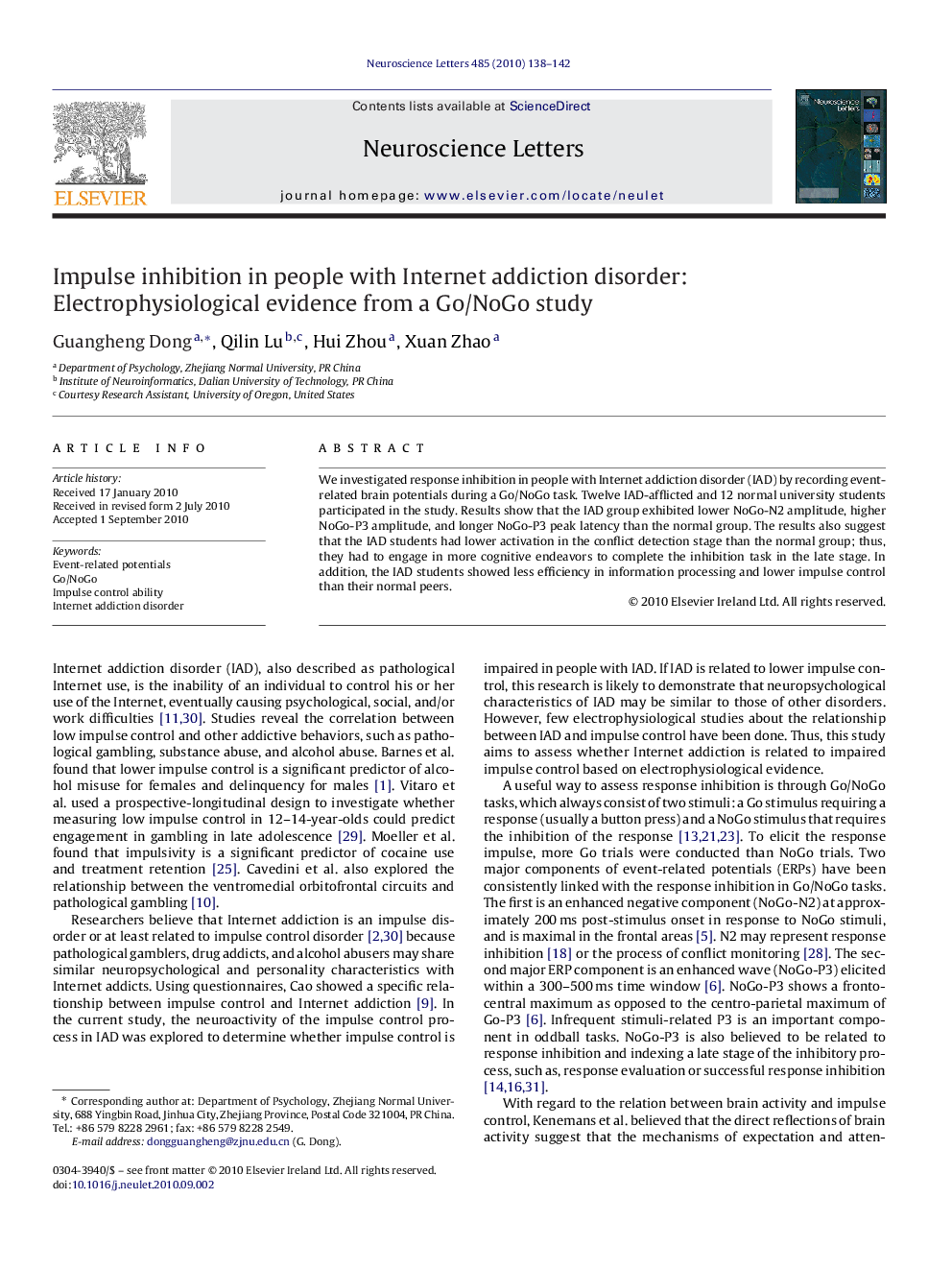| Article ID | Journal | Published Year | Pages | File Type |
|---|---|---|---|---|
| 4345747 | Neuroscience Letters | 2010 | 5 Pages |
We investigated response inhibition in people with Internet addiction disorder (IAD) by recording event-related brain potentials during a Go/NoGo task. Twelve IAD-afflicted and 12 normal university students participated in the study. Results show that the IAD group exhibited lower NoGo-N2 amplitude, higher NoGo-P3 amplitude, and longer NoGo-P3 peak latency than the normal group. The results also suggest that the IAD students had lower activation in the conflict detection stage than the normal group; thus, they had to engage in more cognitive endeavors to complete the inhibition task in the late stage. In addition, the IAD students showed less efficiency in information processing and lower impulse control than their normal peers.
Research highlights▶ Inhibitory ability is impaired in IAD-afflicted people. ▶ The lower inhibitory control ability in IAD can be indexed by higher NoGo-P3 amplitude. ▶ The inferior response inhibition ability of the IAD group might have come from the first stages of conflict detection to the later stage of response evaluation or successful response inhibition.
